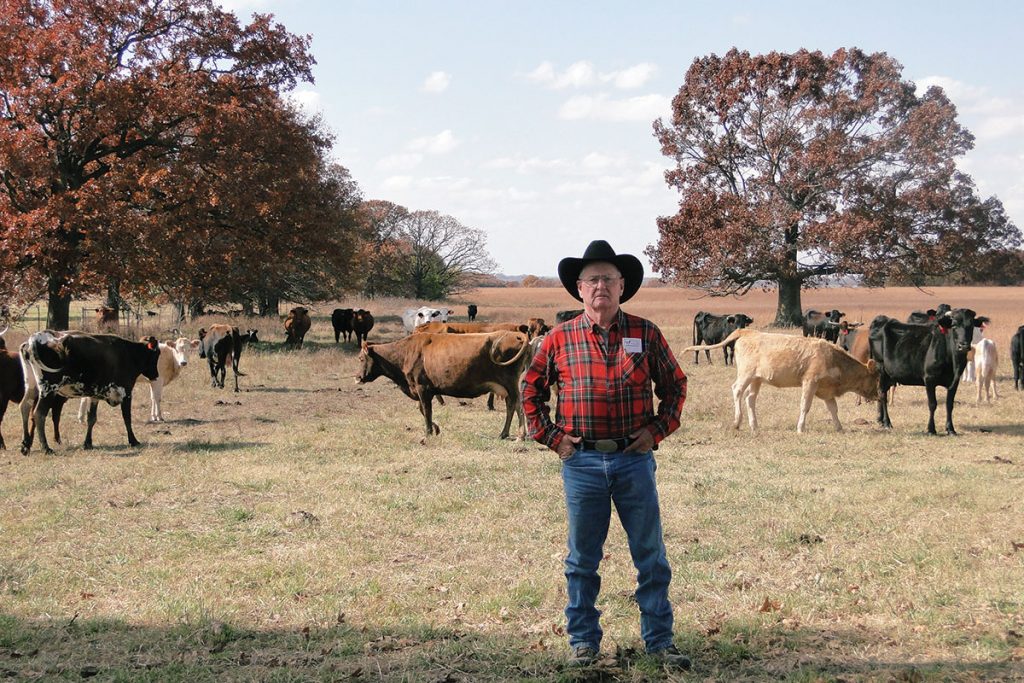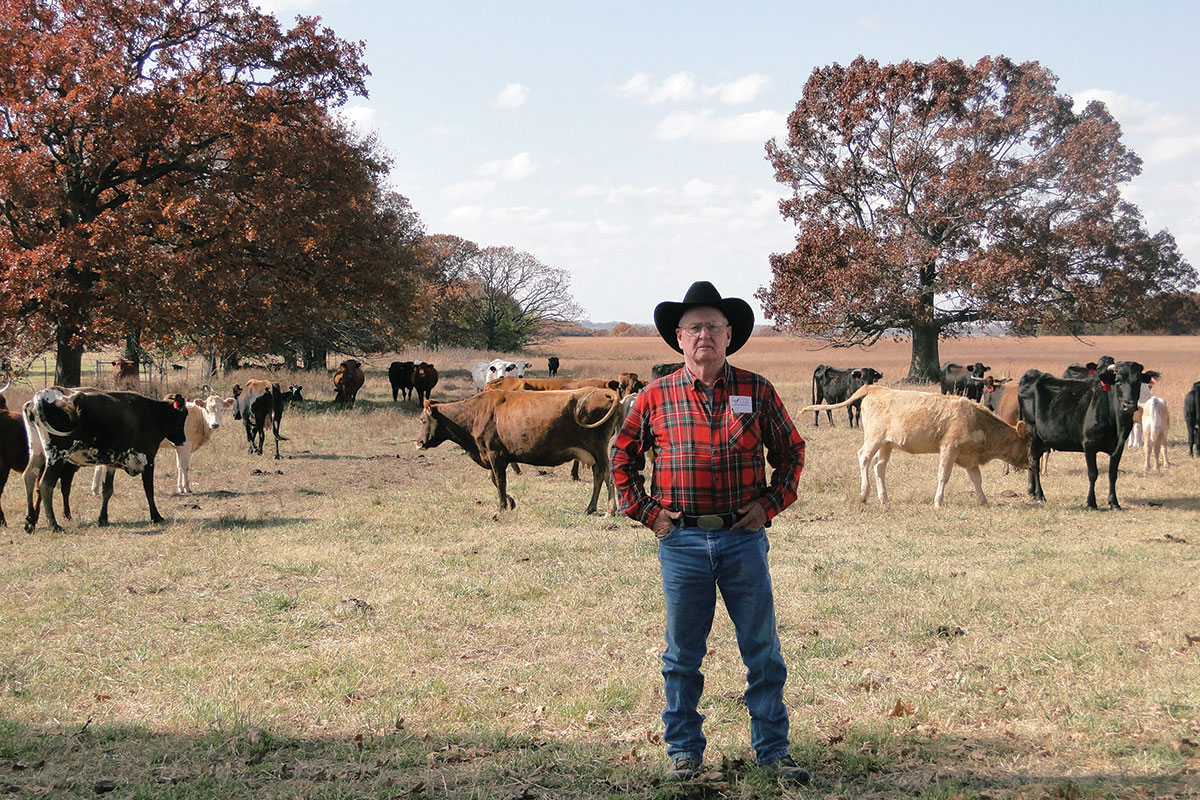
Chester Palmer says he is always looking for new ventures
When Chester Palmer was 6 years old, his granddad and his Uncle Chester mowed the hay fields with horses then Chester raked the hay using a team of horses. A horse-powered stationary baler completed the process.
“My dad (Milt) was a horse trader so I had to use whatever he had available,” Chester explained.
“The horses were not always well-trained. About the time I got them working well together, Dad traded them off. Now, my ‘left-hand man’ and nephew Brian does my haying for me, as well as stepping in to help whenever he is needed.”
According to Chester, Milt would “trade anything but a dog” and was forever going somewhere for new inventory. As a result, Chester and his brother Kenny had to do chores while Milt went to sales. When Milt passed, the acreage was divided between the two brothers.
After college, Chester worked as a high school vocational agricultural teacher for four years. However, that job was not his passion; he needed to be outside and more active. He became a ranch manager for absentee owners in Missouri and Oklahoma. At one time, he was managing five ranches, doing everything from working as a janitor to buying and selling cattle, to hiring and firing help.
One of the turning points in Chester’s life was meeting his future wife Kay in a IGA parking lot when the grocery store brought in a band. Fifty-three years later, the couple is still happily in love.
Chester was involved in helping the Craig and Ottawa County Cattlemens’ Associations get started, although he gladly turned it over to younger people once that initial task was established.
Chester is one of those people with the amazing capacity to identify opportunities and to manage multiple income streams. These include buying and selling exotic cattle like Zebus and Watusis, and working as a fieldman and pen rider for Joplin Regional Stockyards for more than 30 years. He also owns Flint Creek Kennel raising, sometimes training, and selling Mountain Curs.
At one point, he kept 25 to 30 mostly purebred rental bulls. When trich testing became required, Chester decided the operation had too much liability. Another activity that Chester and Kay no longer hold after 18 years of doing so is a consignment sale twice a year where they sold draft horses, mules and equipment. What makes everything work is a daily list. The daily list allows Chester to keep track of everything so everything gets done.
An equally important part of his operational methods is a small Gideon-sized datebook where he records things he wants to remember such as important events, people, and observations. He has kept all of the datebooks which cover 50 years.
At one time, Chester and his father had 250 cows, plus 100 Holstein heifers. They bought open or short-bred Holsteins and sold them close to calving. However, if Milt was considered a horse trader, then Chester is a cow trader. Early on he raised Corrientes, the first breed brought to the New World by Columbus on a voyage in 1493. He initially raised them for roping cattle and when he decided to start a commercial beef operation, he dehorned them and bred them to Charolais bulls.
Chester used Charolais bulls which “took the spots off them.” Except for a short period of time when he unsuccessfully tried Angus hoping, but not achieving, the same result, Chester has always bred his cows to purebred Charolais bulls. Because the Corriente breed requires so much less daily care, Chester is able to balance all of his other interests in addition to raising calves. Corrientes have few birthing problems in spite of their size and calves often grow as large as their mothers before being weaned. He culls any female as soon as she doesn’t raise a good calf and changes bulls every two or three years.
Chester follows a typical health protocol with pinkeye an occasional issue. He said the small Corriente breed doesn’t have the same problems as the English breeds, a factor that fits in nicely with his busy schedule. Another practice as a result of his schedule is weaning calves on the trailer on their way to the sale barn instead of weaning and backgrounding as he used to.
“I didn’t plan on being so diversified.” Chester said. “Rather the diversification grew out of opportunity, and I still keep my eye open for new ventures,” Chester said.







